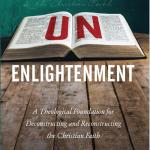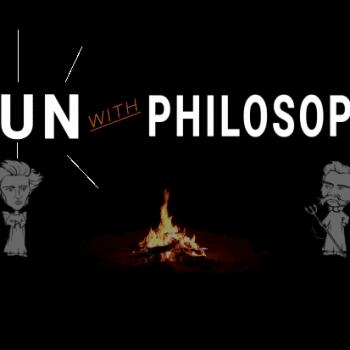
Many people struggle with the question, what is the meaning of life? All great thinkers from the beginning of time have asked this question. And from time to time even some not-so-great thinkers have asked the question. This is because the question is timeless. I recently conducted an informal survey on FaceBook trying to ascertain what people think about the question. As expected I got a lot of different answers. Perhaps the thing I learned most is that no one agrees upon a single answer to the question.
First, It is important to understand that asking the question of meaning is very different from asking the question of purpose. Meaning is a question for humanity, whereas purpose is a question for the individual. With that said, the individual’s purpose must in some way comprise the larger question of meaning. This is the relation between the two. This means that in order for individuals to know their purpose, they must first understand the meaning behind the purpose.
Part of the problem is that not everyone asks about the meaning of life. Why? Because for some asking such questions require thinking and contemplating about death. This means that fear is often the reason people don’t consider such questions. However, fear is also the result of ignorance; and ignorance is the result of not properly contemplating. So the individual needs to overcome their fear because the question is an important one for every human being to consider during their life. I think too many people settle for not asking the question and they simply exist in the world.
Otherness
Many thinkers have focused the nature of the question on the individual self. However, I firmly believe the answer to the question of meaning, and therefore purpose lies in the being of the “other”. The other is the only thing that can provide meaning for the self. When the self dies all that is left is the other – the things that have been left behind. The acts made toward the other can have an enormous and far-reaching impact. For example, the effects that I have on my children will be far-reaching, extending to their children, and their children’s children, etc. Therefore, meaning must be connected to the other.
When meaning is created in otherness, then there are portions of that act that retain value for the individual self. It’s not all lost in the other. This explains why humans find so much value in good works toward others – especially those less fortunate than themselves. In this sense, the more altruistic an individual is being the more selfish they are being because what they gain may be exponentially more valuable than what they have given to the other. Selfishness is not an indictment on the individual but simply an observation.
Personal Identity
One of the most important aspects of meaning for the individual has to do with personal identity. Personal identity is a process that is largely formed toward the beginning of adulthood but is also evolutionary throughout the individual’s whole life.
Similarly to Paul Ricoeur, I would argue that all human identity is based upon our ability to perceive ourselves in the other. We look to the other as a reflection of ourselves. I also argue this is the true meaning behind the story of Adam and Eve. We read in Genesis 2:23 the following:
“The man said, “This is now bone of my bones and flesh of my flesh; she shall be called ‘woman,’ for she was taken out of man.”
Adam could not find his identity in any of the animals that were created – there was no reflected self. None of them were like him. This is why Eve is created from him because she was like him. They are equal in their nature and purpose. In fact, the only way Eve can properly reflect Adam’s identity is if she is co-equal to him.
In today’s day and age, it is in vogue to argue against empathy – especially within conservative evangelicalism. That in some way empathy is a weakness. I would argue just the opposite. In order for us to be truly human and have purpose we must empathize with others. It is in this empathy that we preserve ourselves. We learn more about ourselves from the empathy we express to others.
How Then Shall We Live
To live one must first die to self. One cannot elevate apart from dying to self. In this sense to die is to live. I am not speaking about death in some elusive sense. Quite literally, when the individual gets rid of themselves they are reborn. Reborn into a life of meaning and purpose. This is what Jesus is referring to when he tells Nicodemus that he has to be “born again”. To be born again means that we have a new life where our focus shifts from ourselves to the other. Jesus demonstrates this through his own death. Meaning for Jesus meant that he would give his life for others. Jesus demonstrated in reality what is meant to be understood philosophically/spiritually. However, when we give our lives for another it is not only the greatest gift that one could give another, but provides the most meaning for the individual’s sacrifice.
“My command is this: Love each other as I have loved you. Greater love has no one than this: to lay down one’s life for one’s friends.” (John 15:12-13)
To be clear, I am not advocating that the only way to have meaning in life is to sacrifice one’s life. What I am saying is that this is the greatest expression of meaning for the individual who is searching. That the individual’s purpose in life is to seek out ways to serve the other and in so doing are accomplishing their purpose in life.
I recognize that this perspective is anti-evolutionary in that survival of the fittest would posit that the individual must protect themselves and further their species through procreation. I’m okay with that as I don’t think the survival of the fittest is a valid theory. I think we do seek survival, but our best chance at survival is to protect not ourselves, but the other. If we always looked out for the best interest of others, we would not be so prone to violence. Violence is an aberration of what is natural in man. I believe we seek violence as a means to protect ourselves from the violence we fear from other people. But that way of thinking is not the best way to be human.
Ultimately, I believe this is the message of Jesus. Just as Jesus came to serve the “other” so too must we seek out the other for there is no greater purpose in this life than to love our neighbor.
You can view my UNenlightenment YouTube Channel HERE
You can view my UNenlightenment Podcast HERE
You can follow me on FaceBook HERE
You can purchase the book UNenlightenment HERE.














